
Home Care Tips
Keep your home in tip top shape with a little help from these home care tips.
- Filter:
- All
- Extreme Weather
- Irrigation
- Spring
- Video
- Winter
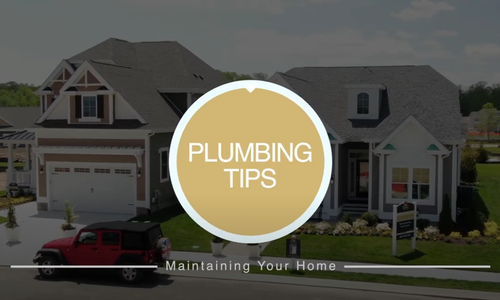
Plumbing Tips
We're here today to talk about a few plumbing tips!
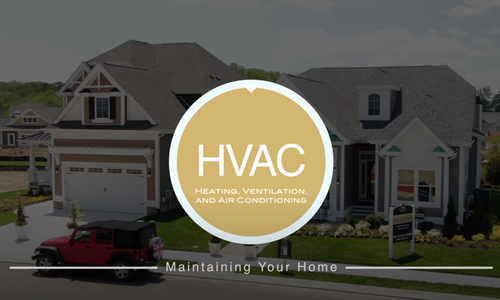
Heating, Ventilation, and Air Conditioning
A few tips to keep things running smoothly and efficiently in your Schell Home. Such as changing air filters, flushing the condensate line, and keeping the humdiity levels at a proper set range.
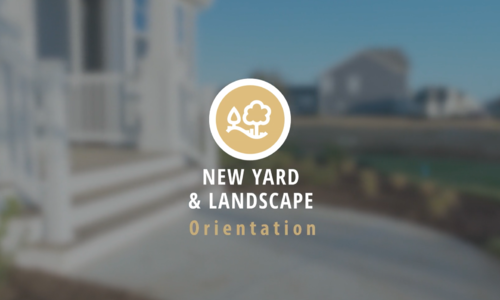
New Yard and Landscape Orientation
We want you to be satisfied with your new yard and landscaping. Therefore, we would like to review some details and set proper expectations to ensure you have the best possible starter lawn.
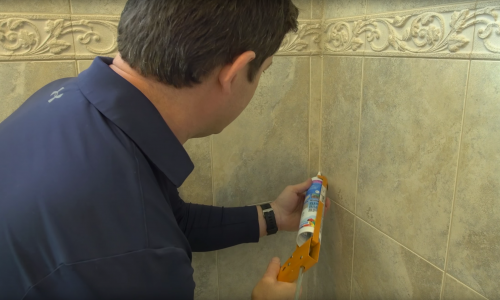
How to Caulk Your Shower
Rich Gehman walks us through the process of caulking your shower.
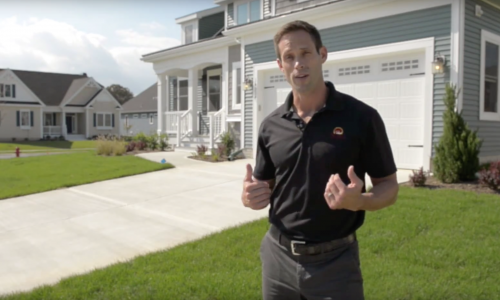
How to Operate and Maintain Your Garage Door
Bobby Gross from Overhead Door Company walks us through the process of operating and maintaining your garage door.
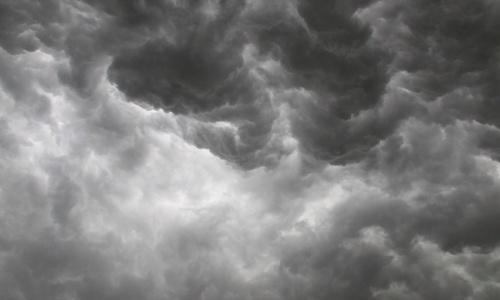
Tips and Information
Please note that our homes are designed to withstand normal weather conditions. In the case you do experience any damages to your home during a natural disaster situation, you must contact your homeowner's insurance company immediately for their evaluation.
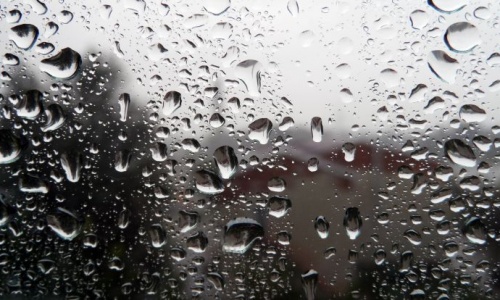
Heavy Rainfall and Extreme Wind Expectations
- When it rains a lot in a short period of time, your yard swale and lawn may take longer than 24 to 48 hours to drain and dissipate. Please expect this to occur in extreme weather conditions. Please turn off your irrigation cycles, or contact your HOA in reference to the community irrigation system.
- The gutters that are installed on your home are designed to carry water in normal conditions, but with heavy rain they may overflow, which is normal in extreme weather conditions.
- Due to County and State regulations, during construction we must keep the community drains filtered to prevent construction debris and dirt from washing into the water system. This will cause some delay in the draining of the water and cause possible back-ups on the roads and sidewalks of the community. Please expect this to occur with high levels of rainfall.
- During extreme windy conditions, shingle or siding loss could be possible. If this occurs, please contact your homeowners insurance for repair.
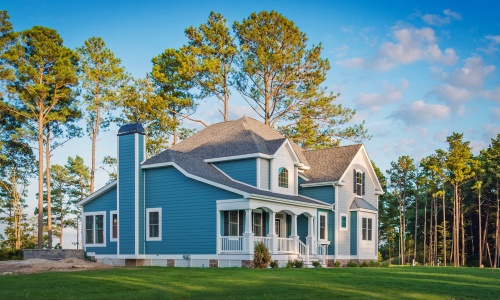
Exteriors
- Check all gutters and downspouts, making sure that they are free from debris and clear at the exit point. If you have “pop-up extensions” leading into the yard, make sure the exit point of the “pop-up extension” is clear and not clogged.
- Check all exterior GFI circuits, making sure that all are active and working properly.
- Check your crawl space access well, walk out basement floor drain, and egress windows, making sure that the area and drain is clear of debris and grass clippings.
- If you control your own irrigation system, be sure to turn it off during these conditions. For community irrigation systems, make sure to contact your HOA about this concern.
- Monitor and make sure any area way and overflow drains are free of debris.
- Secure any loose patio furniture, umbrellas or trash cans that can be blown around.
- If the power goes out, contact the utility company immediately. With no power, sump pump and ejector pits will not operate. In this case, do not use the basement bath.
- Unplug any exterior yard lighting fixtures from power outlets.
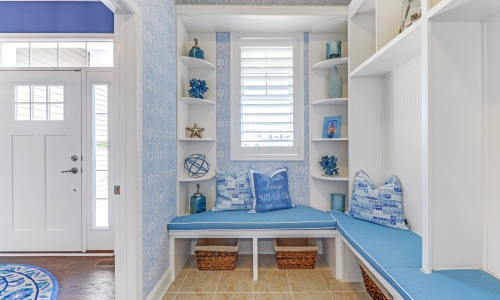
Interiors
- Make sure that all windows and exterior doors are securely closed and locked.
- Check operations of the sump pump within your basement or crawl space, making sure the pump is working properly. If you have a battery back-up, ensure that the battery is fully charged.
- Have emergency kit available with flash lights and batteries.
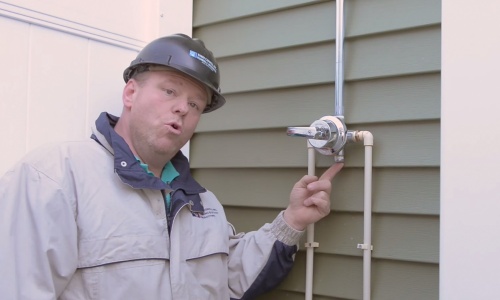
Decks & Outdoor Spaces
- Make sure to winterize your irrigation system.
- Winterize your exterior shower.
- Remove hoses from exterior faucets. “Freeze proof” faucets suffer a broken water line if the water in the hose freezes and expands into the pipe.
- Store outdoor furniture and cushions.
- Remove ceiling fan blades for outdoor ceiling fans if applicable.
- Inspect chimney for nests.
- Check foundation, concrete, and yard for settling; fill in as needed for positive drainage.
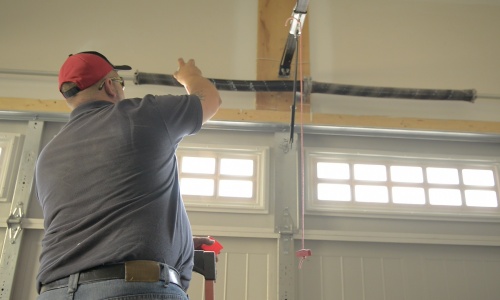
Garage
- Check garage overhead door, tighten bolts as needed, and lubricate springs with a medium weight oil. Have other repairs done by professionals.
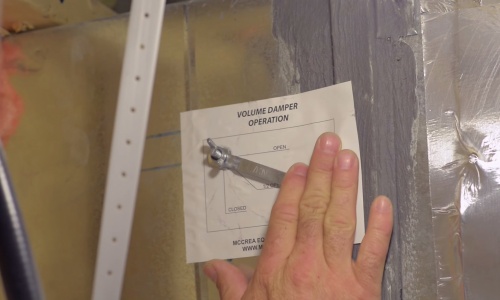
How to Adjust Your Manual Dampers
- The damper is located above furnace and controls air flow to different parts of your house.
- In the summer time, its advised to close the damper off on the main trunk line off about half way to push more air flow to the upper level of your home.
- In the winter time, you'll want to open up the damper, so to restrict air flow to the up-stairs, so the upper floor doesn't get too hot.
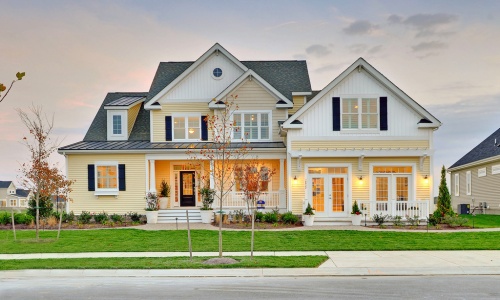
Exteriors
- Adjust or replace weather stripping on exterior doors as needed.
- Check the fit of exterior doors; thresholds are adjustable—use a quarter to turn the screws.
- Check caulking, inside and on exterior of home, and touch up, especially around exterior doors and windows.
- Clean gutters, check downspouts; confirm that splash blocks and extenders drain away from the house.
- After snowfall, brush snow off gutters and away from downspouts.
- Remove ice and snow from concrete promptly; do not use de-icing agents with damaging salts.
- Decorate safely for the holidays. Do not overload circuits or use worn extension cords.
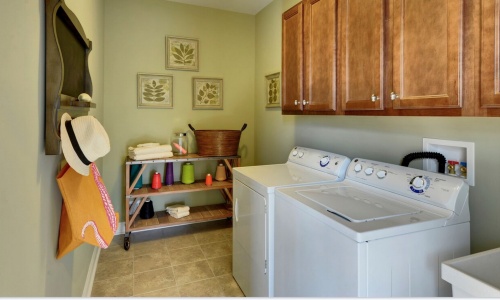
Appliances
- Remove lint from dryer exhaust vent with a long, flexible brush.

Crawl Space & Basement
- Check crawl space and basement insulation, making sure it is secure.
- Check sump pump, making sure its operational and free of debris.
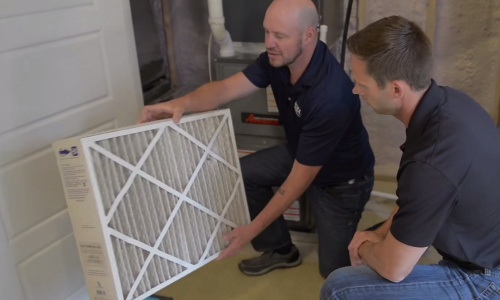
Heating & Cooling Systems
- Change or clean the furnace filter.
- Operate the heating system.
- Adjust registers and confirm that cold air returns are clear of furniture or draperies.
- Check manual damper for appropriate seasonal setting within crawl space and basements.
- Have furnace/heating system serviced annually.
- Maintain comfortable heating levels between 68º F to 70º F, but no less than 60º F for extended absences from home.

Inside Your Home
- Clean and test smoke alarms and carbon monoxide detectors.
- Test and reset ground fault circuit interrupters (GFCI) breakers.
- Review safe fireplace operation. Provide professional cleaning at regular intervals.
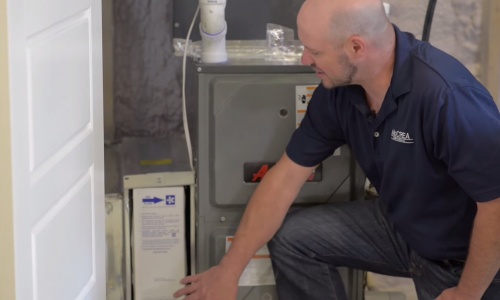
How to Change Your Air Filter
- The air filter is located beside your furnance, often located in the basement or crawspace.
- The filter should be check every 3 months, and replaced at least every 6 months.
- To replace air filter, write down part number, and/or MERV #, and check with local hardware store.
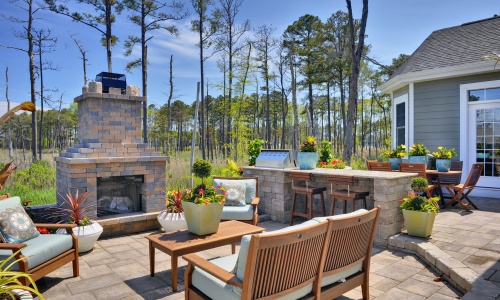
Decks & Outdoor Spaces
- Test exterior faucets for broken pipes.
- Clean gutters and confirm that downspouts or splashblocks and extenders drain away from the house.
- To clean and get your exterior decks ready for the spring and summer season make sure to follow the care and maintenance guidelines listed for your specific decking manufacture.
- Look for settling of backfill soils and fill in where needed.
- Re-activate your irrigation system, making sure the system is operational for the upcoming summer months.
- Undertake spring landscaping maintenance; fertilization plan.
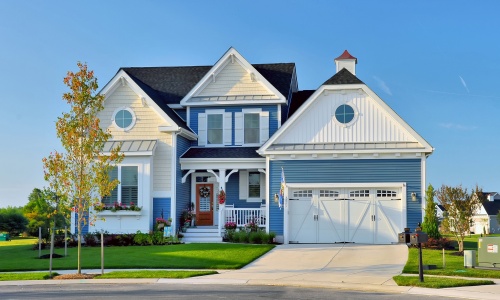
Garage
- Check caulking and weather-stripping, including around entry door from garage and house.
- Check garage overhead door, tighten bolts as needed, and lubricate springs with medium weight oil. Have other repairs done by professionals.
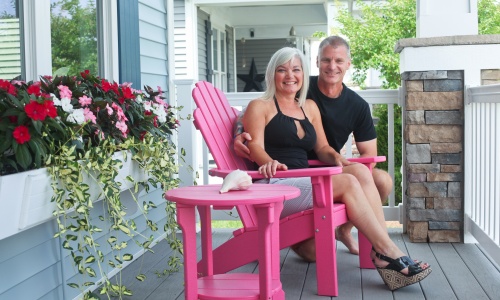
Exteriors
- If your vinyl siding needs a spring cleaning, please follow these simple cleaning steps from Exterior Portfolio.
- If your fiber cement siding needs a spring cleaning or needs to be re-caulked, please follow manufacturer's care and maintenance guidelines.
- Wash windows and screens, clean weep holes, and lubricate tracks for proper operation. Please see manufacturers guide for proper cleaning.
- To prevent possible air leakage or water intrusion, inspect all caulking of the home, both inside and on the exterior of home, and touch-up especially around exterior doors and windows. This is recommended twice a year and is the responsibility of the homeowner to perform this maintenance.
- Inspect roof from the winter for possible blown off shingles, and replace if necessary.
- Check exterior paint and stain surfaces (especially stained doors) and refinish as needed.
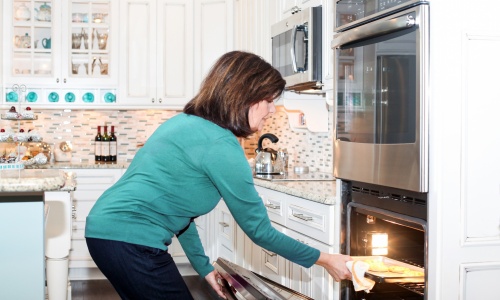
Appliances
- To have your Rinnai serviced and sediment flushed out, you must contact a licensed professional for this service. This is recommended once a year. For more information visit the manufacturers website.
- Remove lint from dryer exhaust vent with a long, flexible brush, and make sure the exterior exhaust vent is clear of debris.
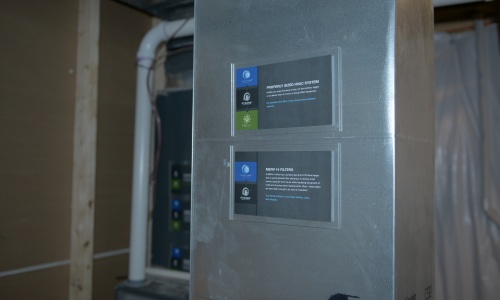
Crawl Space & Basement
- Check manual damper for appropriate seasonal setting within crawl space and basements.
- It's recommended that you check the furnace and dehumidifier filter every 4-6 months. Change or clean filter if necessary.
- Check basement outdoor drain for grass clippings or blockage.
- Check sump pump, making sure it's operational and free of debris.
- Inspect basement or crawl space for signs of possible leaks.

Heating & Cooling Systems
- Operate air-conditioning system; if service is needed it is more conveniently arranged before the busiest part of the season arrives.
- Adjust registers and confirm that air returns are clear of furniture or draperies.
- Make certain the air-conditioner compressor is level and clear of debris.
- Maintain comfortable AC levels between 74°F to 76°F, but no more than 78°F for extended absences from home.
- Check that air intakes and exhausts are clear of debris, nests, etc.

Inside Your Home
- Inspect grout around tile (floor or wall) and touch up.
- Clean and test smoke alarms and carbon monoxide detectors. Check batteries twice a year and change if necessary.
- Test and reset ground fault circuit interrupters (GFCI) breakers.
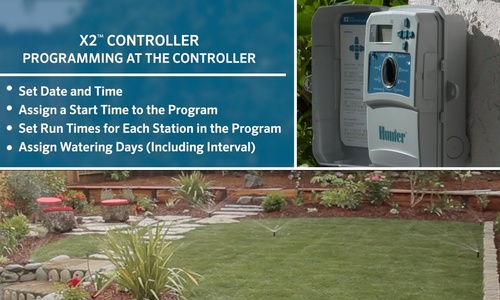
Irrigation Controller (Hunter X2)
This video provides an overview of basic offline programming with your X2 controller. In addition to reviewing terminology and explaining programs, we will cover the basic programming steps required for an irrigation program.
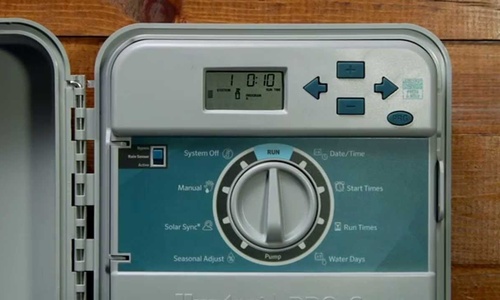
Irrigation Controller (Hunter Pro-C)
This video shows you the basic steps to program a Hunter Pro-C irrigation controller and how to use its various features, from setting the date and time to adjusting seasonal percentages and more, including manual operation.

